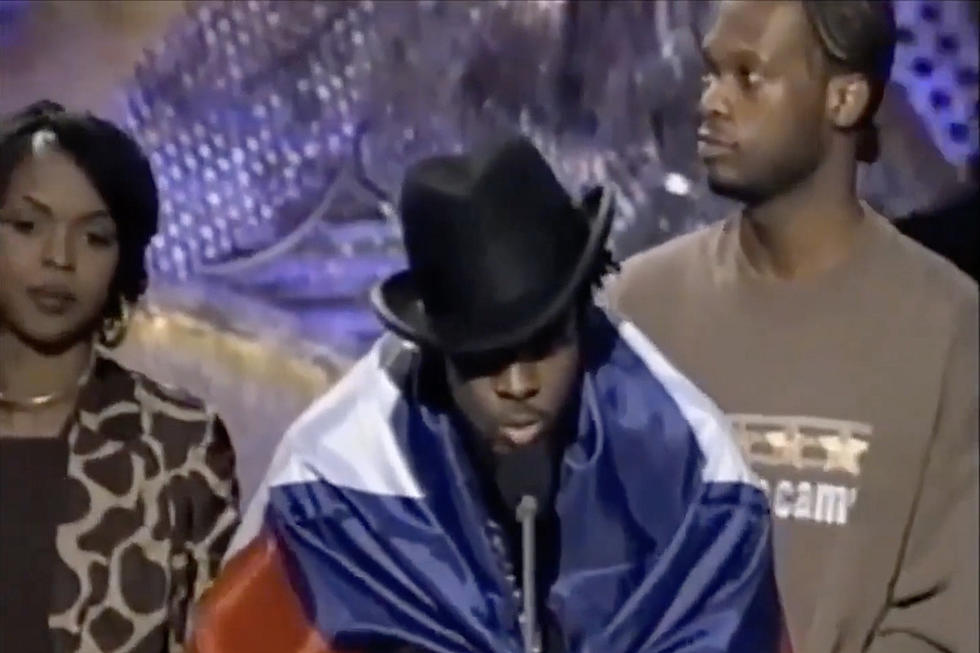
Wyclef Jean Showcases His International Flair With ‘Carnival 3: The Fall and Rise of a Refugee’ Album
When the public notes the pivotal rapping producers that have had seismic impacts on the landscape of hip-hop, Wyclef Jean's name is one that gets overlooked at times, but his track record speaks volumes about his contributions. In addition to that, the mastermind behind The Fugees is also a master of reinvention, continuously adding new wrinkles to his sound and weathering the waters of a genre in which the tides are ever-changing.
After the release of The Fugees' sophomore album, The Score, Wyclef branched off with his own debut, Wyclef Jean Presents The Carnival, in 1997, which was a critical and commercial success and announced him as a solo star and a jack of all trades. Having released the sequel, Carnival Vol. II: Memoirs of an Immigrant, in 2007, Wyclef revisits his popular franchise once again with Carnival III: The Fall and Rise of a Refugee, his first project since unleashing his J'ouvert EP earlier this year.
Known for being a multi-cultural affair, the third installment of the Carnival series finds Wyclef leaning on his hip-hop roots on album opener "Slums," a frantic selection on which the Refugee All-Star sends words of encouragement to to those caught in the struggle. "Life's like a carnival every day, but we stay sucker free, no clown face," Wyclef spills over a drum and synth-laden soundscape, courtesy of Wavie Boi and Wyclef himself, while costars Jazzy Amra, H1DaHook and Marx Solvila complete the cypher.
Listeners are met with more serene vibes on the DJ Flict-produced "Turn Me Good," a reggae cut on which Wyclef asks, "What we gonna do when we get to Zion?" over guitar riffs, drums and scratches. He continues the festive grooves on the album's lead single, "Fela Kuti." A rollicking song of empowerment, the T-Baby-assisted "Warrior" ranks as a early highlight on Carnival III. "Johnny went to school, sick of getting jumped/Today was the day that he wouldn't run, he's a warrior," the Haitian ambassador croons over mounting strings, lively horns and persistent percussion, which precedes an appearance from comedian D.L. Hughley on "Double Dutch."
Equally adept at creating crossover hits as he is at capturing the essence of his roots, Wyclef Jean cooks up a monster of a record in "What Happened to Love," produced by The Knocks. The LunchMoney Lewis-assisted collaboration has Top 40 written all over it. "You never have to be alone/I swear that you're the only one/You know with me you've found your home," Wyclef and LunchMoney drawl over keys and hand claps, with the latter ultimately stealing the show with a commanding performance on the hook, assisting in "What Happened to Love" being one of the more refined cuts on Carnival III.
Wyclef's eighth studio album may be powered by a string of upbeat selections that inspire you to move your feet, but Carnival III also includes moments of introspect and reflection that round out the album, one of which is the somber "Carry On," produced by Leon Lacey, Alberto Vaccarino and Wyclef himself. Vocalist Emeli Sandé anchors the track with her performance, asking, "Has your heart fell in love with the sad song, have your feet fell in love with the edge?" while Wyclef holds up his end of the bargain with an impassioned stanza of his own.
The album ends on a favorable note with the J'Mika and Marx Sovila-assisted tune, which pays homage to hip-hop and its key figures from the past and present. "If it wasn't for the culture, they'd probably have me doing 32 summers," Wyclef muses over organ keys as he takes listeners to church, closing the proceedings on a grand and gracious note.
For all intents and purposes, Carnival III is yet another display of the range of Wyclef's artistry and skill set that should only bolster his standing as one of rap's biggest international stars. Traditional rap verses may be far and few between on this outing, however, the vibes are steeped in the spirit of hip-hop in spite of their international influences, making it clear although Wyclef is not confined to a box, he has not abandoned his roots, even on the other side of more than two decades of winning over audiences across the globe.
Carnival III: The Fall and Rise of a Refugee is a strong collection and a worthy addition to the Wyclef catalog, but not devoid of its share of misfires. "Double Dutch" is a pedestrian inclusion at best, while "Trapicabana" includes a Travi$ Scott impersonation on the part of Wyclef on the song's hook, one of multiple instances in which Wyclef oversteps his boundaries. Those minor gripes aside, Carnival III: The Fall and Rise of a Refugee proves to be a triumphant return for Wyclef Jean and serves as yet another example of his international flare.
See Photos of Rappers’ Fashion Choices in 1997
More From XXL









